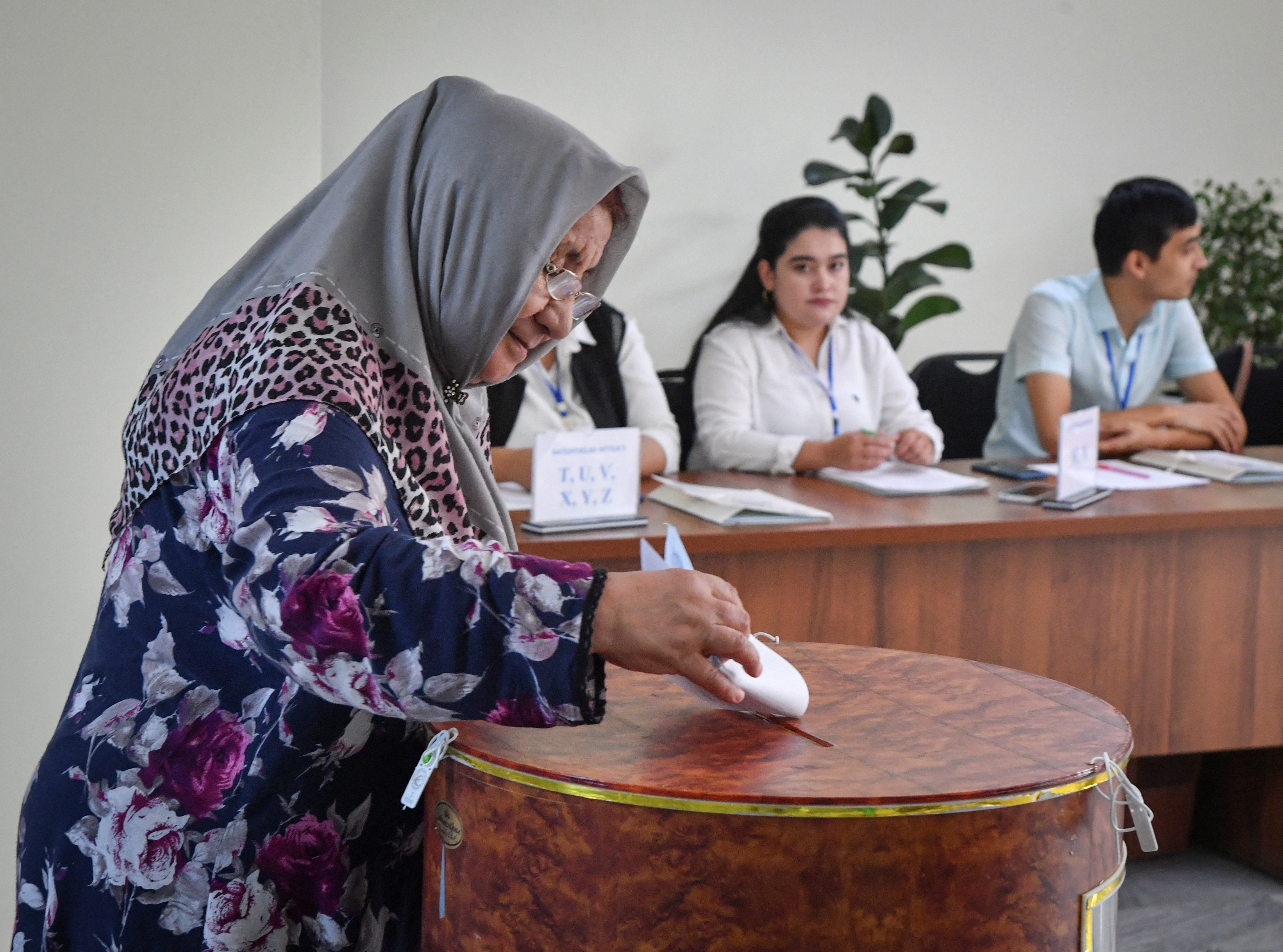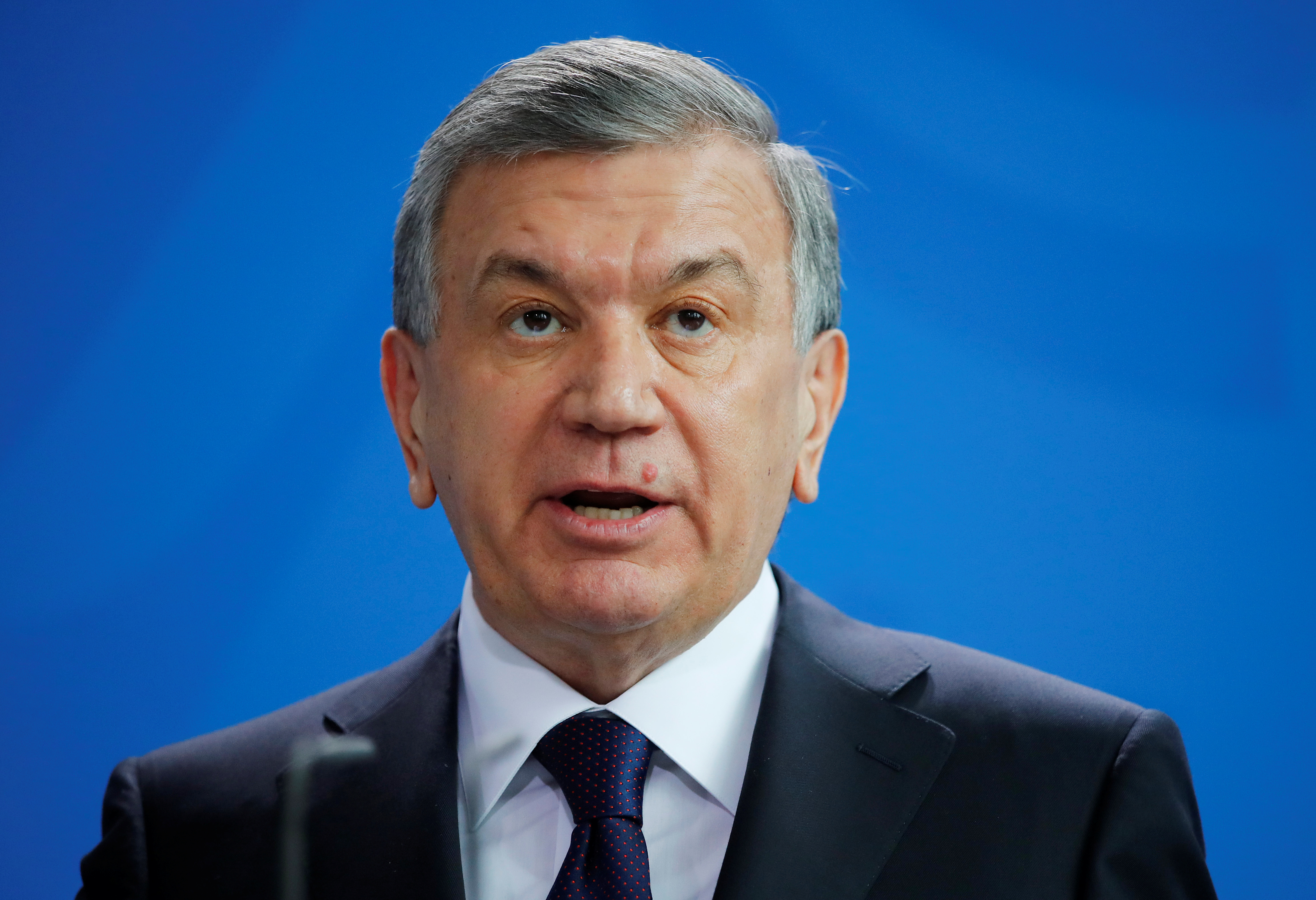
Polls have opened in Uzbekistan where President Shavkat Mirziyoyev is likely to secure a third term as head of state.
Polling stations opened at 8am (03:00 GMT) and are set to close at 8pm (15:00 GMT) on Sunday, with about 20 million Uzbeks eligible to vote in Central Asia’s most populous country.
The snap election comes months after a constitutional referendum paved the way for Mirziyoyev to serve two more presidential terms and increased the tenure from five years to seven.
The change means the 65-year-old incumbent could stay in power until 2037.

Mirziyoyev served as prime minister under his hardline predecessor Islam Karimov before winning his first term in 2016 and getting re-elected in 2021.
He has promised to open up his country, a tightly controlled former Soviet republic, to foreign investment and tourism.
Largely unknown challengers
Mirziyoyev, who is running against three largely unknown candidates from the Ecological Party, the People’s Democratic Party and the Social-Democratic Party of Adolat (Justice), is expected to secure a majority of votes.
“These are my first elections. I will be voting for Shavkat Mirziyoyev because I want there to be more opportunities for young people and places to study,” said 18-year-old Milana Yuldasheva, a resident of Krasnogorsk, a former mining town about 50km (31 miles) from capital Tashkent.
Abduali Nurmatov, 64, said he hoped the president would solve “problems with gas and electricity” as the town suffered repeated cuts during the last winter.
Mirziyoyev, who portrays himself as a reformer creating a “New Uzbekistan”, has ended forced labour in the country’s cotton fields and released political prisoners jailed during Karimov’s long rule.
NGOs say human rights are better now than under Karimov, but there is still significant room for improvement. They report that the current government has shown no sign of allowing a real opposition to emerge.
“The victory of the incumbent president is obvious,” Uzbek political expert Farkhod Talipov told the AFP news agency ahead of the election.
“All the other candidates are completely unknown and unpopular. Their candidacies are just an artificial way of showing a political struggle that does not exist.”
The Organisation for Security and Co-operation in Europe (OSCE) said the campaign has been “low-key, mirroring lack of opposition to the incumbent”.
In July 2022, protests erupted over a plan to remove the right to self-determination from the region of Karakalpakstan.
The unrest and subsequent crackdown in the poor northwestern territory killed at least 21 people.
Mirziyoyev’s re-election campaign has focused on the economy and education. He has said he aims to double the country’s gross domestic product (GDP) to $160bn in the near future.
Like other states in Central Asia, Uzbekistan is trying to minimise collateral damage from Western sanctions imposed against its traditional trading partner Russia over the war in Ukraine.
The Russian rouble’s weakness means Tashkent is expected to see reduced foreign exchange inflows from millions of Uzbeks who work in Russia.
Once an energy exporter, Uzbekistan now consumes more oil and gas than it produces and has been buying Russian hydrocarbons, benefitting as Moscow redirects exports away from the West.







